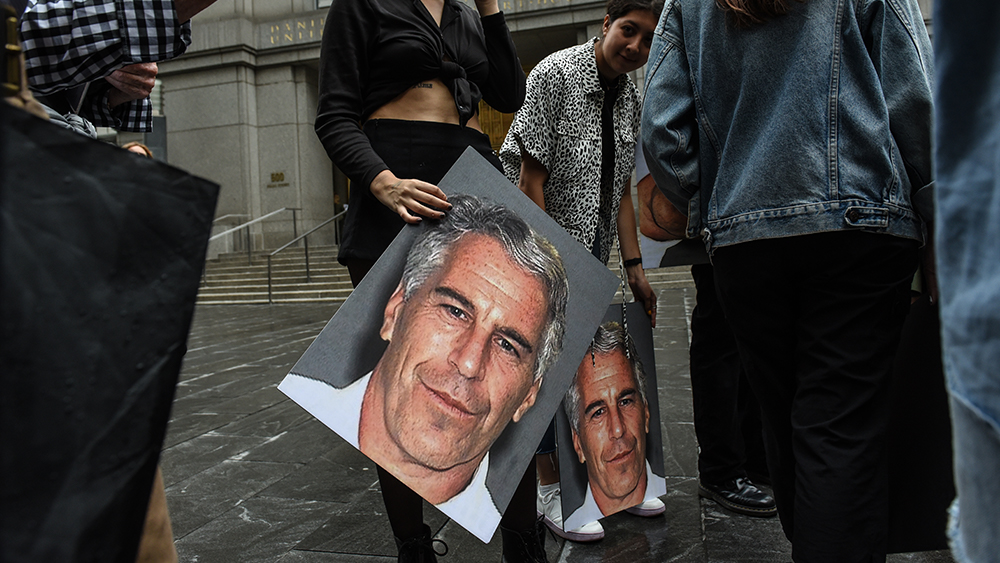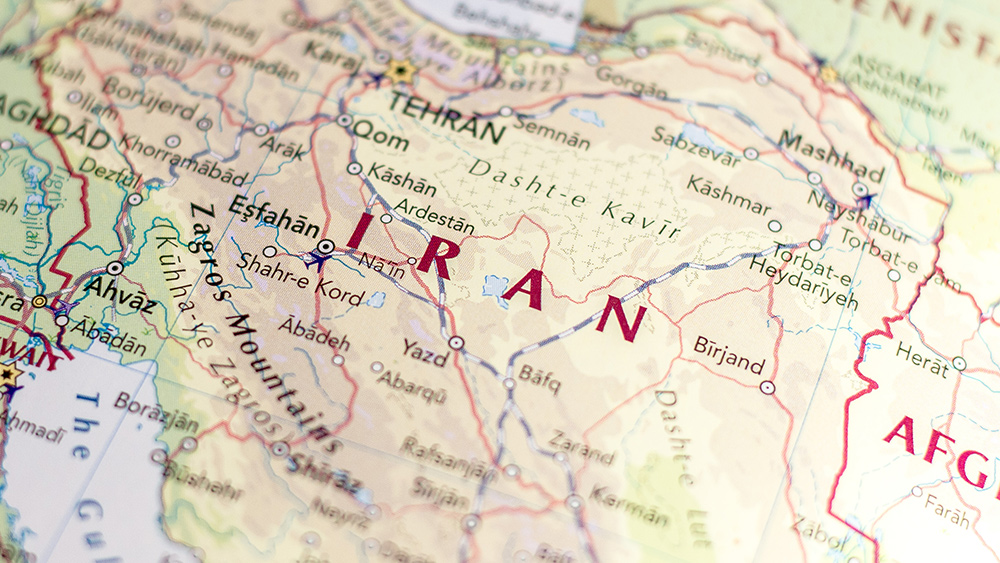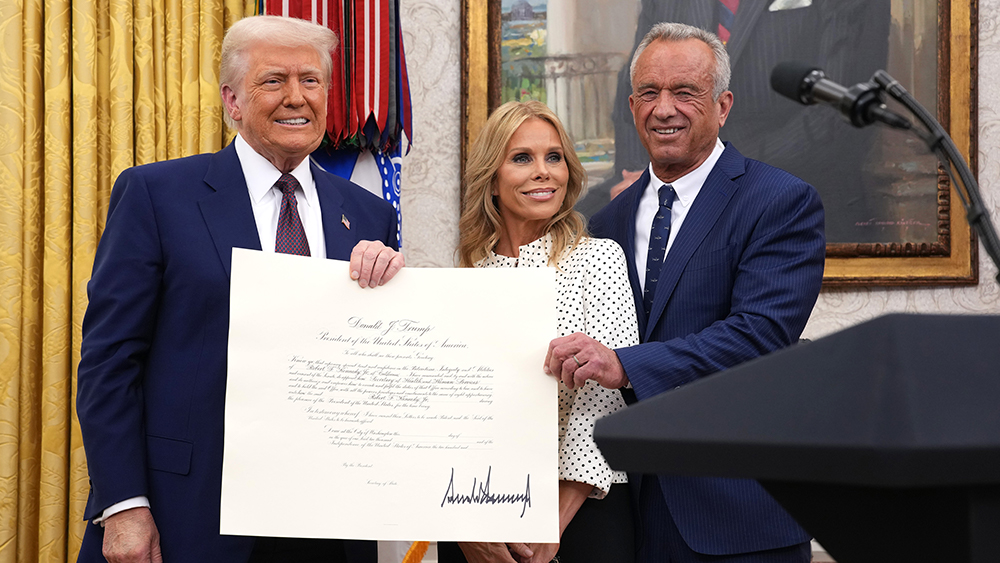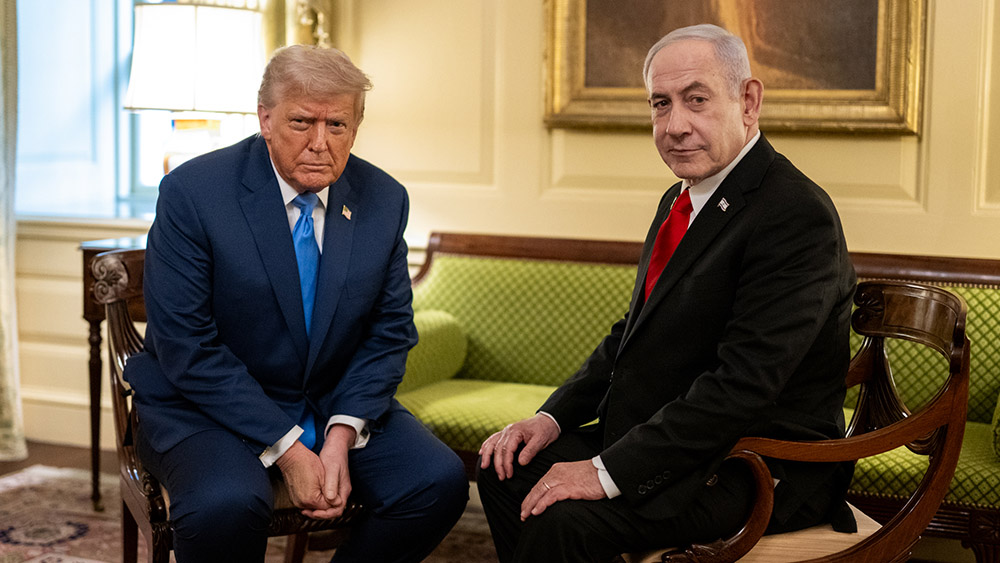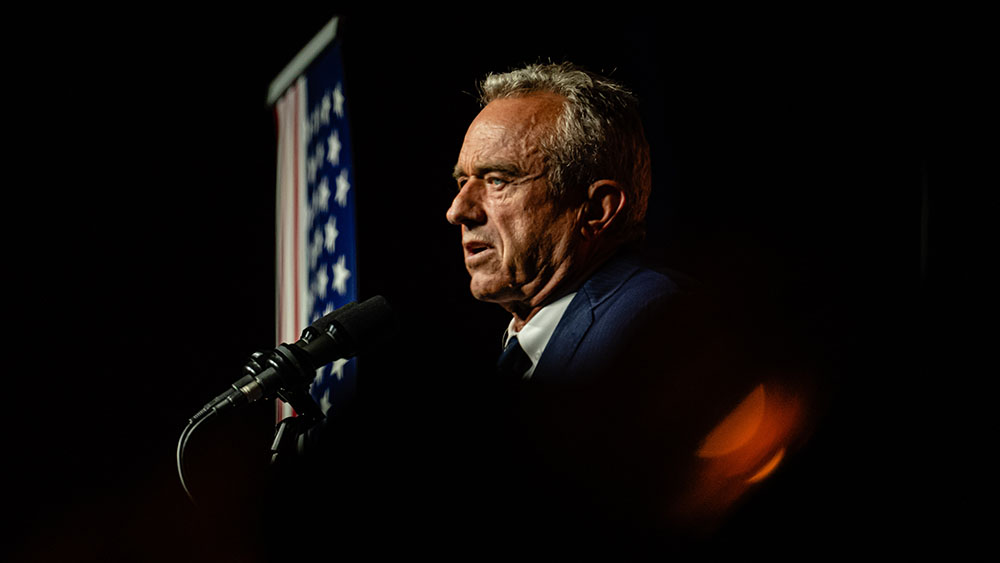The architect of global chaos and regime change is now reaping political and economic instability at home
11/18/2025 / By Lance D Johnson
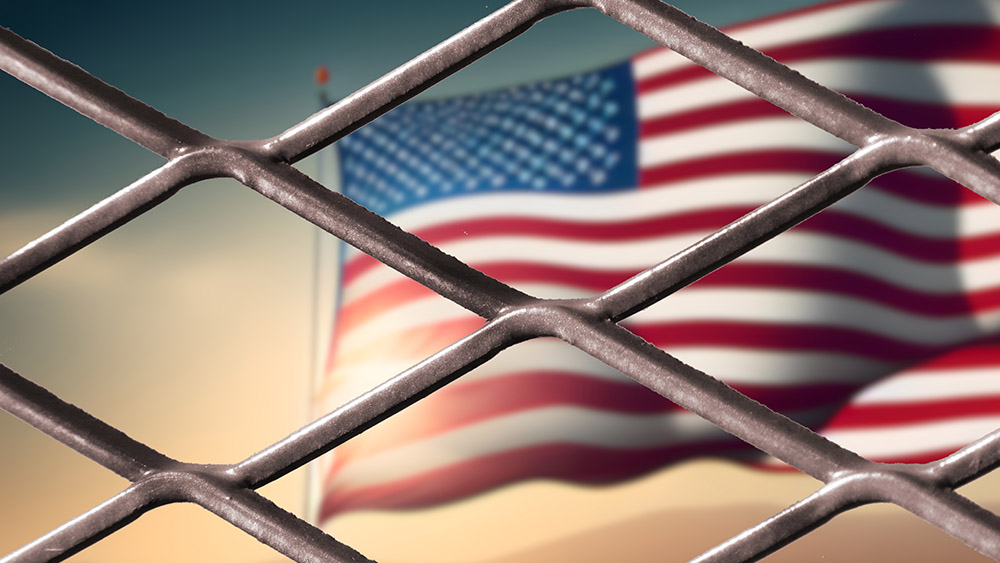
A nation that dedicates itself to sowing discord across the world is starting to see the same seeds of destruction sprouting in its own backyard. For decades, the United States positioned itself as the master of controlled chaos, destabilizing foreign nations while maintaining a facade of domestic strength and unity. That carefully constructed image is now shattering. The internal divisions and political turmoil currently gripping America are not an anomaly; they are the inevitable consequence of a foreign policy built on intervention and arrogance. The very strategies of destabilization once exported abroad have now come home to roost, revealing a nation at war with itself.
Key points:
- Decades of U.S. foreign policy focused on sowing discord and orchestrating regime changes have created a global landscape of instability.
- This habit of international recklessness has now turned inward, manifesting as deep political polarization and social fragmentation within the United States.
- America’s inability to manage its own domestic affairs is weakening its global standing, as allies act independently and adversaries grow more emboldened.
- The nation’s military-industrial complex prioritizes profit over preparedness, leaving the U.S. vulnerable despite massive defense spending.
- A moment of national introspection is urgently needed to address internal failures before attempting to dictate terms to the rest of the world.
A legacy of intervention and its boomerang effect
The United States has often presented itself as a global peacekeeper, but a closer examination reveals a long and destructive history of meddling in foreign affairs, arming factions in other countries to destabilize governments. Consider the orchestrated regime changes. From the jungles of Latin America to the deserts of the Middle East, U.S. operations have repeatedly toppled governments, often leaving behind power vacuums filled by extremism and civil war. This pattern of intervention, frequently justified under the guise of promoting democracy or protecting resources, has systematically dismantled regional stability. The consequence is a world bristling with unresolved conflicts and deep-seated resentment toward American power. How can a nation that has consistently broken things it cannot fix possibly lecture others on governance and stability? The chaos unleashed in these nations did not simply disappear; it festered, and in the interconnected modern world, it was only a matter of time before it impacted the homeland.
Ways the U.S. sows chaos around the world
- Funding and Supporting Political Opponents: Channeling financial resources, strategic advice, and logistical support to opposition parties, trade unions, and dissident groups to build a viable political alternative to a ruling regime.
- Economic Sabotage and Sanctions: Implementing targeted economic measures to cripple a nation’s economy, foster public discontent, and turn elite allegiances against the sitting government. This creates a fertile ground for political upheaval.
- Propaganda and Disinformation Campaigns: Utilizing media assets to broadcast narratives that erode trust in the government, magnify its failures, and legitimize its opponents. This aligns with the concept of “mediapolitik,” where information is weaponized to shape public perception.
- Color Revolution Model: In the post-Cold War era, a more modern template for political transformation emerged, often referred to as the “color revolution” model. These are largely grassroots movements that nonetheless benefit from significant external support and coordination. The U.S. role, often conducted through proxies like government-funded foundations (e.g., NED, USAID, IRI, NDI), involves:
- Election Monitoring and “Democracy Promotion”: Sending delegations to scrutinize elections in sovereign nations. If the results are unfavorable to U.S. interests, these groups can declare the process illegitimate, providing a catalyst for mass protest.
- Civil Society and Youth Movement Cultivation: Providing years of training, funding, and organizational support to activist groups, student movements, and independent media outlets. This builds a pre-positioned network capable of mobilizing rapidly during a political crisis.
- Non-Violent Resistance Training: Teaching tactics of civil disobedience, strategic non-violent protest, and digital organizing to create a sustained, media-friendly movement that can overwhelm state authorities.
- Threat of Military Force: The most direct form of regime change is through the application or threat of military force. While outright invasion is rare, the U.S. has frequently utilized its military supremacy in more nuanced ways to topple adversarial governments.
- Arms-Length Support for Proxy Forces: Providing weapons, intelligence, and military advisory support to rebel groups or insurgent forces fighting a government, as seen in conflicts throughout Latin America, Africa, and the Middle East. This allows the U.S. to wage a war without committing its own troops to a full-scale ground campaign.
- “Shock and Awe” Military Invasions: The most overt method, as demonstrated in Iraq (2003) and Afghanistan (2001), where direct military action was used to dismantle the existing political structure and install a new, friendly administration.
- The Threat of Force as Leverage: The mere presence of a powerful military alliance or fleet can be used to intimidate a government, influence its military loyalties, and encourage defections, thereby weakening it from within until it collapses.
The crumbling facade of American strength
While projecting an image of invincibility, the United States has been quietly weakening from within. The country’s military-industrial complex, a powerful alliance between defense contractors and political interests, has focused on producing exorbitantly expensive weapons systems rather than ensuring genuine, broad-based readiness.
Today, as the Trump Admin positions Congress to fund an “iron dome,” the U.S. struggles to produce basic artillery rounds for an ally like Ukraine, let alone manufacture tanks at a rate that would be meaningful in a major conflict. The nation that once served as the “arsenal of democracy” during World War II now lacks the industrial capacity to support a prolonged engagement. This reality stands in stark contrast to the development of advanced, cost-effective weapons by rivals. A single hypersonic missile, costing a fraction of an American aircraft carrier, possesses the potential to neutralize a multi-billion dollar symbol of U.S. naval power. This mismatch exposes a profound unpreparedness. Is the massive defense budget actually buying national security, or is it merely enriching corporations while the nation’s real strength erodes?
A world learning to operate without Washington
As America becomes increasingly preoccupied with its internal crises, its ability to dictate terms on the global stage is rapidly diminishing. Long-standing allies, once reliable instruments of U.S. policy, are now charting their own courses. Turkey and Israel now act with “near-total independence,” pursuing agendas that often directly contradict Washington’s interests. Washington works at these nation’s disposal, cleaning up their messes, but their leadership is no longer respected. This loss of control is a direct result of a foreign policy that has become a series of reactive improvisations designed for domestic consumption rather than a coherent, strategic vision. The world is taking note. Joint military exercises between Iran, Russia, and China signal a coordinated effort to prepare for a future where American hegemony is no longer a given. The U.S., distracted by its own political theater and hobbled by a weakened industrial base, finds itself in the precarious position of being unable to effectively respond to these shifting alliances. The mask of the uni-polar world leader is slipping, revealing a nation that is struggling to maintain its own domestic union, let alone manage international order. When it comes to Russia and Ukraine, both leaders pretend to care what President Trump is talking about, but both continue to ignore U.S. leadership and wage war.
The path forward requires a fundamental shift in perspective. It demands that the United States turn its critical gaze inward, to address the domestic issues that are undermining the very fabric of our society. The focus must shift from orchestrating chaos abroad to rebuilding capacity, unity, and constitutional values at home. The world is indeed watching, but it is no longer watching with fear or deference. It is watching a nation that sowed the wind now beginning to reap the whirlwind. The time for arrogant intervention is over; the time for humble introspection and genuine self-improvement is now.
Sources include:
Submit a correction >>
Tagged Under:
American decline, China, defense spending, domestic turmoil, election integrity, Foreign policy, global instability, hypersonic missiles, internal conflict, Iran, Israel, Middle East, military-industrial complex, national identity, national security, political polarization, regime change, Russia, sovereignty, Turkey
This article may contain statements that reflect the opinion of the author
RECENT NEWS & ARTICLES
COPYRIGHT © 2018 DECEPTION.NEWS
All content posted on this site is protected under Free Speech. Deception.news is not responsible for content written by contributing authors. The information on this site is provided for educational and entertainment purposes only. It is not intended as a substitute for professional advice of any kind. Deception.news assumes no responsibility for the use or misuse of this material. All trademarks, registered trademarks and service marks mentioned on this site are the property of their respective owners.

